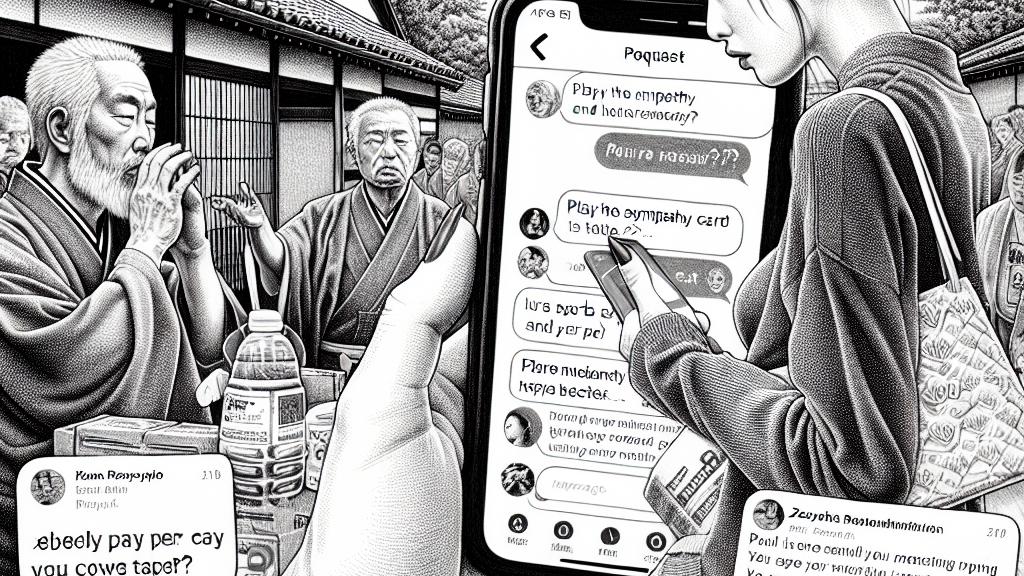Is My Ex-Husband Trying to Reignite Our Romance Under the Guise of Care?
Overview
- An ex-husband reaches out for help during a health crisis, raising suspicions about his motives.
- Public reaction unveils a blend of skepticism and empathy regarding his intentions.
- Discussions highlight the complexity and nuances of relationships in the modern world.

Context of the Request
In Japan, a woman's unexpected encounter with her ex-husband unfolded through a PayPay request. He asked her to purchase sports drinks and medication while he was feeling unwell. Instantly, this request invited speculation—was it a genuine appeal for assistance, or a strategic move to provoke feelings of care and rekindle their relationship? Some might argue that invoking sympathy can be a subtle way to gain emotional leverage. Social media lights up with perspectives as people weighed in on the situation; comments ranged from playful banter about 'playing the sympathy card' to deep reflections on the motivation behind reaching out to an ex. This highlights just how quickly a simple message can snowball into a web of inquiry and assumption about personal intentions and feelings from the past.
Diverse Public Reactions and Insights
Public reactions to this peculiar plea varied significantly, providing a microcosm of societal attitudes towards ex-relationships. Many users flocked to platforms like Twitter, sharing a medley of thoughts that encompassed humor, confusion, and even concern. For instance, one user quipped about the potential manipulation involved, stating, 'Sounds like he’s fishing for a return!' Meanwhile, another user pondered seriously about the emotional intricacies involved, suggesting that a history of companionship might make it challenging to draw clear lines in such situations. Herein lies a key observation: how an individual perceives their ex-mate in times of vulnerability often hinges on their shared history. Those with amicable breakups are more inclined to respond positively, while those with lingering hurt can view such gestures with skepticism. Thus, this situation becomes a touch point for broader discussions around boundaries, trust, and compassion.
Health Implications of the Requested Sports Drinks
Additionally, delving into the health implications of the sports drinks he requested reveals another critical layer to this scenario. While marketed as necessary for recovery, these drinks can contain excessive sugars that pose health risks—particularly when one is not engaged in rigorous physical activity. A compelling article from health experts recommended alternatives like infused water or electrolyte-rich natural drinks, which serve hydration needs without the high sugar content. Encouraging someone towards healthier choices not only expresses concern for that person’s physical health but can also signify a level of care that extends beyond mere obligations. For instance, suggesting that he opt for a natural drink might just provide the support he needs while keeping lines of healthy interaction alive. This brings us to an essential point: in caring for someone, you have the unique opportunity to intertwine emotional support with lifestyle improvement, creating a stronger foundation for trust and friendship.

Loading...